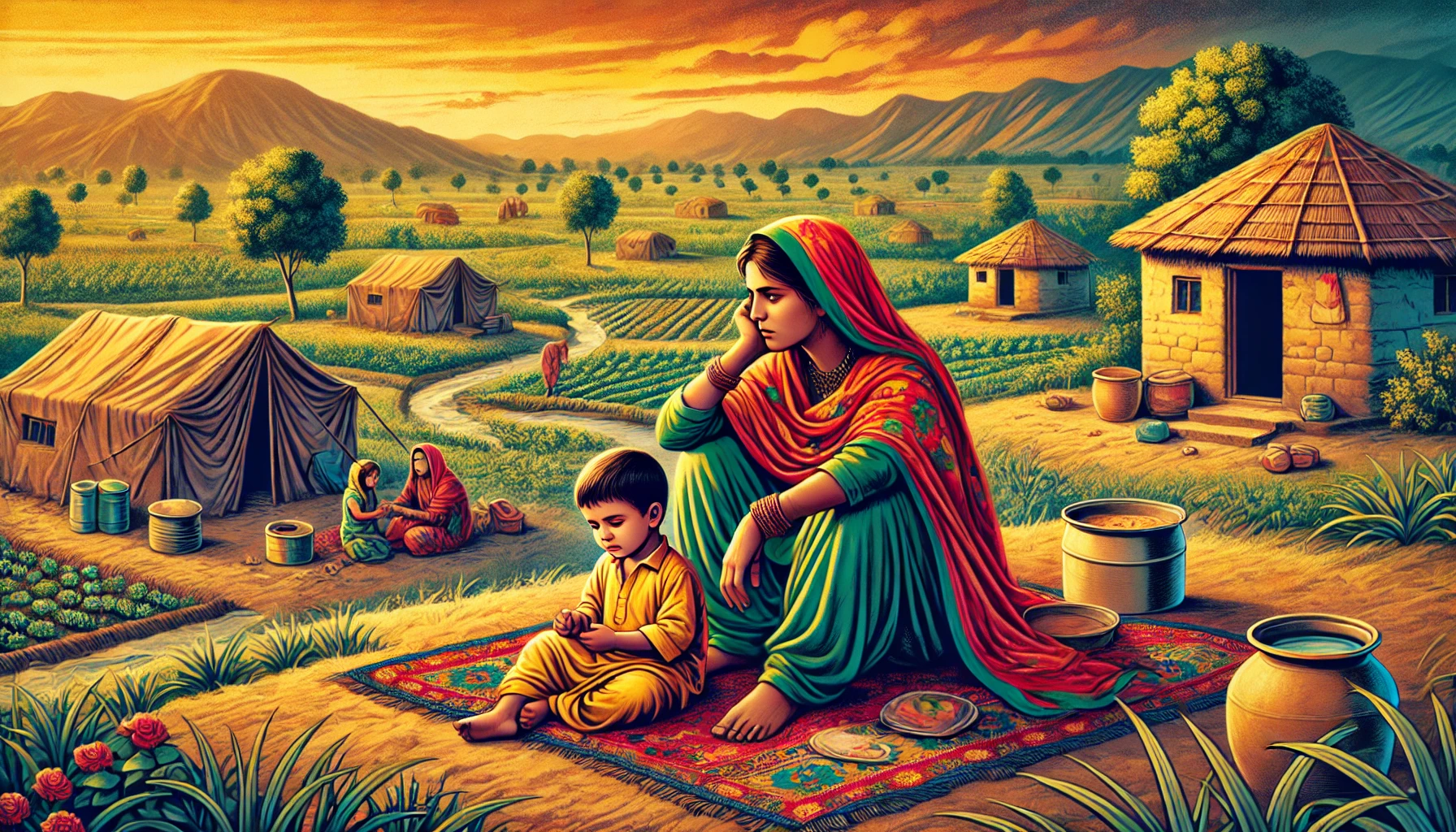The Cost of Neglect: Maternal Mental Health and Developmental Deficits in Pakistan
A study by the World Bank, Yale, and Harvard highlights the significant impact of maternal mental health on child development in Khyber Pakhtunkhwa, Pakistan, with refugee, rural, and less-educated mothers facing heightened challenges. Addressing maternal depression, anxiety, and stress through targeted interventions is crucial for improving early childhood outcomes and breaking cycles of poverty and developmental deficits.

Researchers from the World Bank, Yale Child Study Center, and Harvard T.H. Chan School of Public Health have unveiled the significant impact of maternal mental health on early childhood development (ECD) in Khyber Pakhtunkhwa, Pakistan. This comprehensive study focused on mothers and children aged 0-6 years, exploring the prevalence of maternal depression, anxiety, and parenting stress. Refugee, less-educated, and rural mothers faced disproportionately higher mental health burdens, with these challenges strongly correlating to lower developmental outcomes in children. Refugee mothers, in particular, grappled with compounded stressors, including food insecurity, domestic violence, and displacement-related hardships. The findings emphasize the need for targeted interventions to enhance maternal well-being and safeguard the development of children in these fragile and under-resourced settings.
Refugees and Rural Mothers Face Elevated Risks
The study highlights stark disparities in maternal mental health and child development between different groups. Refugee mothers reported significantly higher rates of depression and anxiety compared to non-refugee mothers, a trend mirrored in rural areas where access to healthcare and support services remains limited. Educational attainment also played a critical role, with mothers lacking primary education exhibiting more pronounced mental health issues. These challenges ripple across households, affecting children’s language, cognitive, and social-emotional development. Refugee children were particularly vulnerable, with developmental scores falling well below global norms. The study’s findings underscore the dual burden faced by refugee families: a lack of access to resources and heightened exposure to stressors like discrimination, economic instability, and inadequate housing.
Environmental Stressors Magnify Mental Health Challenges
External stressors compound the mental health issues faced by mothers, creating a cascade of negative outcomes for children. Factors such as food insecurity, community violence, flooding, and domestic abuse significantly increased maternal depression, anxiety, and parenting stress. Refugee families were disproportionately affected, often living under constant uncertainty regarding their legal status and access to basic services. The cumulative impact of these stressors jeopardized not only maternal well-being but also children’s developmental trajectories, reinforcing a cycle of stress and poor outcomes. For instance, households affected by multiple stressors saw significantly lower developmental scores in their children, highlighting the interplay between environmental challenges and mental health.
The Cost of Inaction: Economic and Social Impacts
The economic consequences of unaddressed maternal mental health are staggering. The study estimates a financial burden of 16.6 billion dollars per cohort of untreated maternal mental health cases in Pakistan. Beyond the economic cost, the societal toll is profound, with intergenerational impacts on human capital and productivity. Maternal mental health challenges hinder nurturing caregiving, crucial for ECD, and the effects ripple into children’s academic, emotional, and social outcomes. Addressing this crisis is not only a moral imperative but also an economic necessity. The findings call for comprehensive, multi-sectoral interventions that integrate mental health support into community healthcare, expand early childhood education, and bolster social protection programs such as cash transfers.
A Path Forward: Holistic Interventions for Families
The study presents actionable recommendations to break the cycle of maternal stress and developmental deficits. Direct interventions, such as integrating mental health support into local healthcare services, can provide immediate relief. Community health workers, like Pakistan’s Lady Health Workers, should be equipped with training to address mental health concerns alongside their existing roles. Additionally, reducing exposure to stressors at the community and household levels is vital. Initiatives to enhance food security, ensure disaster preparedness, and address domestic violence can create more stable environments for mothers and children. Tailored programs for refugee families, focusing on legal support, education, and healthcare access, are also essential.
Holistic interventions that combine direct mental health support with systemic efforts to alleviate stressors can transform the developmental outlook for children in fragile settings. Expanding access to early childhood education, improving maternal healthcare, and providing financial stability through cash transfer programs are critical steps. The study’s findings highlight that improving maternal mental health is not an isolated effort but requires addressing the broader socio-economic and environmental factors that underpin these challenges.
Building Resilience for Future Generations
This groundbreaking study reinforces the critical connection between maternal mental health and child development, especially in fragile, conflict-affected settings. The findings offer a blueprint for policymakers and development practitioners aiming to foster resilience among vulnerable populations. Investments in maternal mental health can unlock significant benefits, enabling children to achieve healthier developmental outcomes and breaking cycles of poverty and stress. By addressing the root causes of mental health challenges and providing comprehensive support to mothers, societies can pave the way for stronger, more resilient generations. The research serves as a call to action to prioritize maternal well-being as a cornerstone for national development and social progress.
- FIRST PUBLISHED IN:
- Devdiscourse
ALSO READ
Myanmar’s Economy Faces Severe Setbacks Amid Conflict, Natural Disasters, and Worsening Food Insecurity
World Bank Reports Outline Strategies for Strengthening Mongolia’s Financial and Private Sectors
World Bank Approves $40M Financing to Strengthen Bhutan’s Climate and Disaster Resilience
World Bank Supports Resilient Agriculture Recovery in Türkiye Following 2023 Earthquakes
World Bank Approves $325M Agriculture Project to Boost Farmers’ Incomes in Uttar Pradesh










